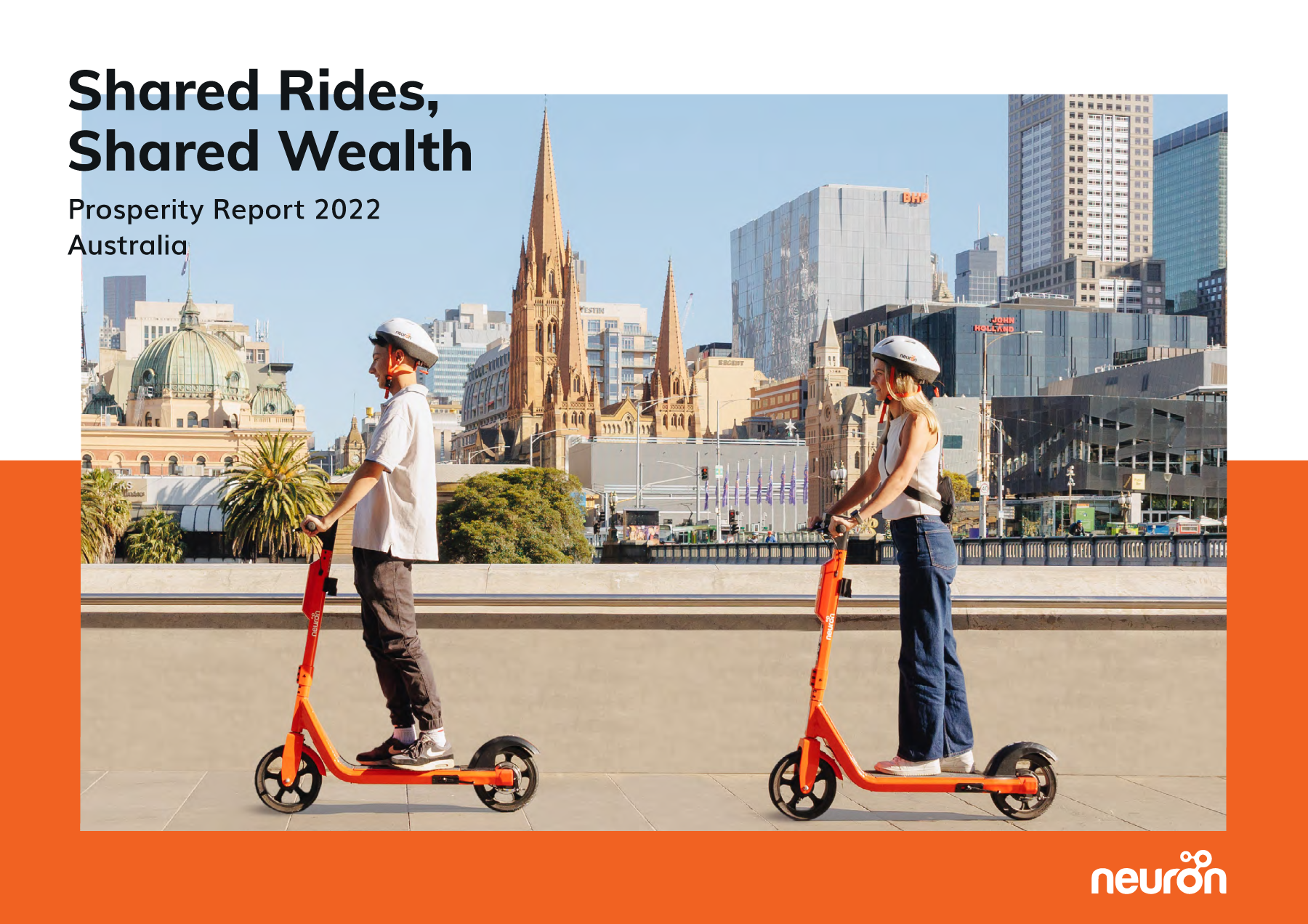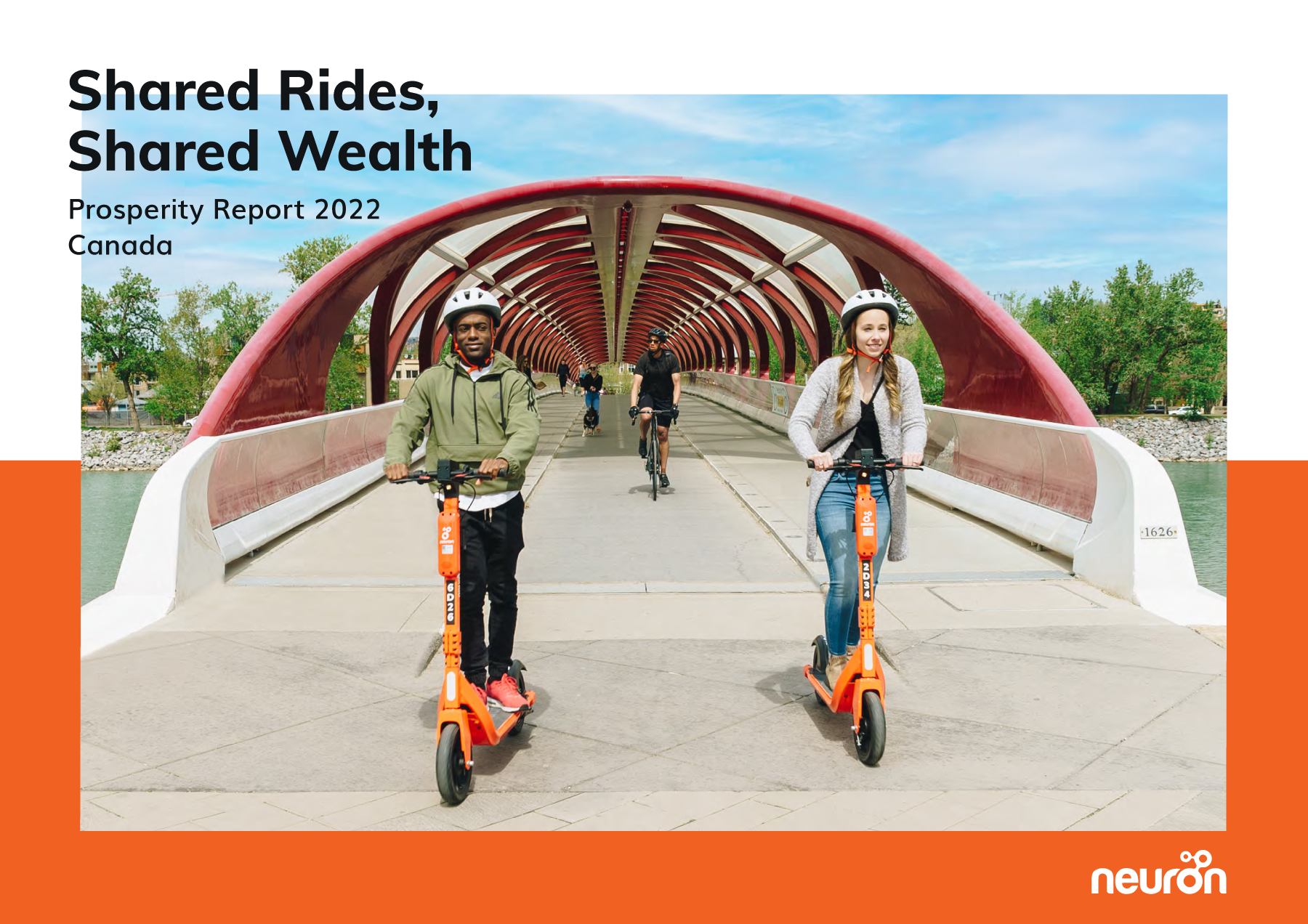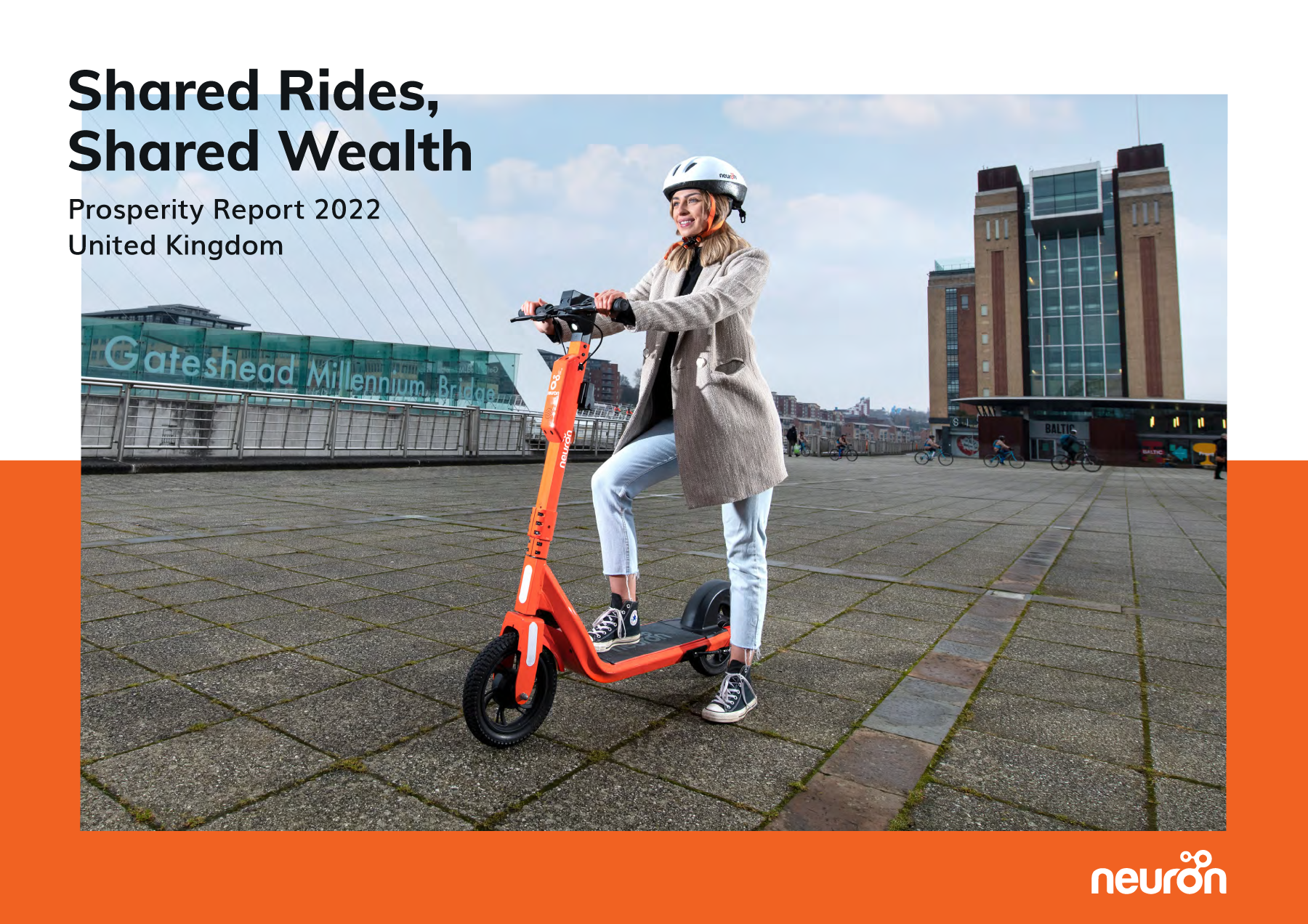Boosting Local Economies
At Neuron, we believe that close cooperation with our city partners, including local councils, businesses, business associations, and charities, can help everyone benefit from a shared micromobility scheme. It can help drive customer spending, connect riders to local businesses, create local jobs and upskilling opportunities, fuel the night-time economy, and more. Learn about how Neuron has contributed to some of our markets.
At Neuron, we believe that close cooperation with our city partners, including local councils, businesses, business associations, and charities, can help everyone benefit from a shared micromobility scheme. It can help drive customer spending, connect riders to local businesses, create local jobs and upskilling opportunities, fuel the night-time economy, and more. Learn about how Neuron has contributed to some of our markets.
At Neuron, we believe that close cooperation with our city partners, including local councils, businesses, business associations, and charities, can help everyone benefit from a shared micromobility scheme. It can help drive customer spending, connect riders to local businesses, create local jobs and upskilling opportunities, fuel the night-time economy, and more. Learn about how Neuron has contributed to some of our markets.
Prosperity Report 2022: Shared Rides, Shared Wealth
Australia Report
Click to view full PDF report
Key findings:
- Neuron riders spend an average of $65 at local businesses per e-scooter trip
- Riders most commonly spend at local restaurants, cafes and eateries
- Each year, Neuron riders in Australia spend $448 million at local businesses during their e-scooter trips
Australia Report
Click to view full PDF report
Key findings:
- Neuron riders spend an average of $65 at local businesses per e-scooter trip
- Riders most commonly spend at local restaurants, cafes and eateries
- Each year, Neuron riders in Australia spend $448 million at local businesses during their e-scooter trips
How Neuron helps the local economy

How Neuron helps the local economy

Neighbourhood Connect: From riders to customers
Neuron’s Neighbourhood Connect programme helps boost local economies by connecting our riders with local businesses and attractions via the Neuron app. With Neighbourhood Connect, local businesses have the opportunity to turn our riders into new customers.
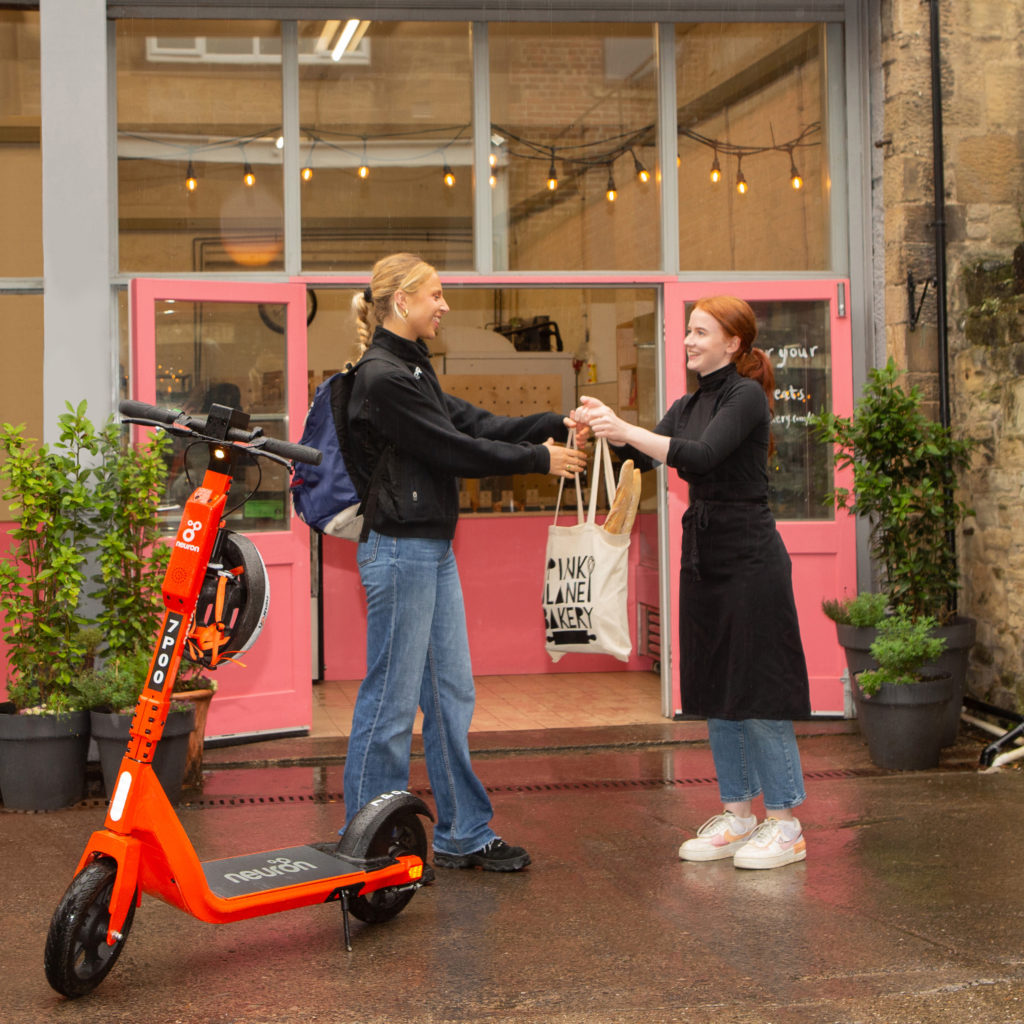
Neighbourhood Connect: From riders to customers
Neuron’s Neighbourhood Connect programme helps boost local economies by connecting our riders with local businesses and attractions via the Neuron app. With Neighbourhood Connect, local businesses have the opportunity to turn our riders into new customers.

Supporting major city events
We keep cities moving during major events such as the Australian Grand Prix in Melbourne, or the annual Stampede in Calgary, Canada. Neuron e-scooters offer event-goers a safe and sustainable mode of transport without contributing to traffic congestion.
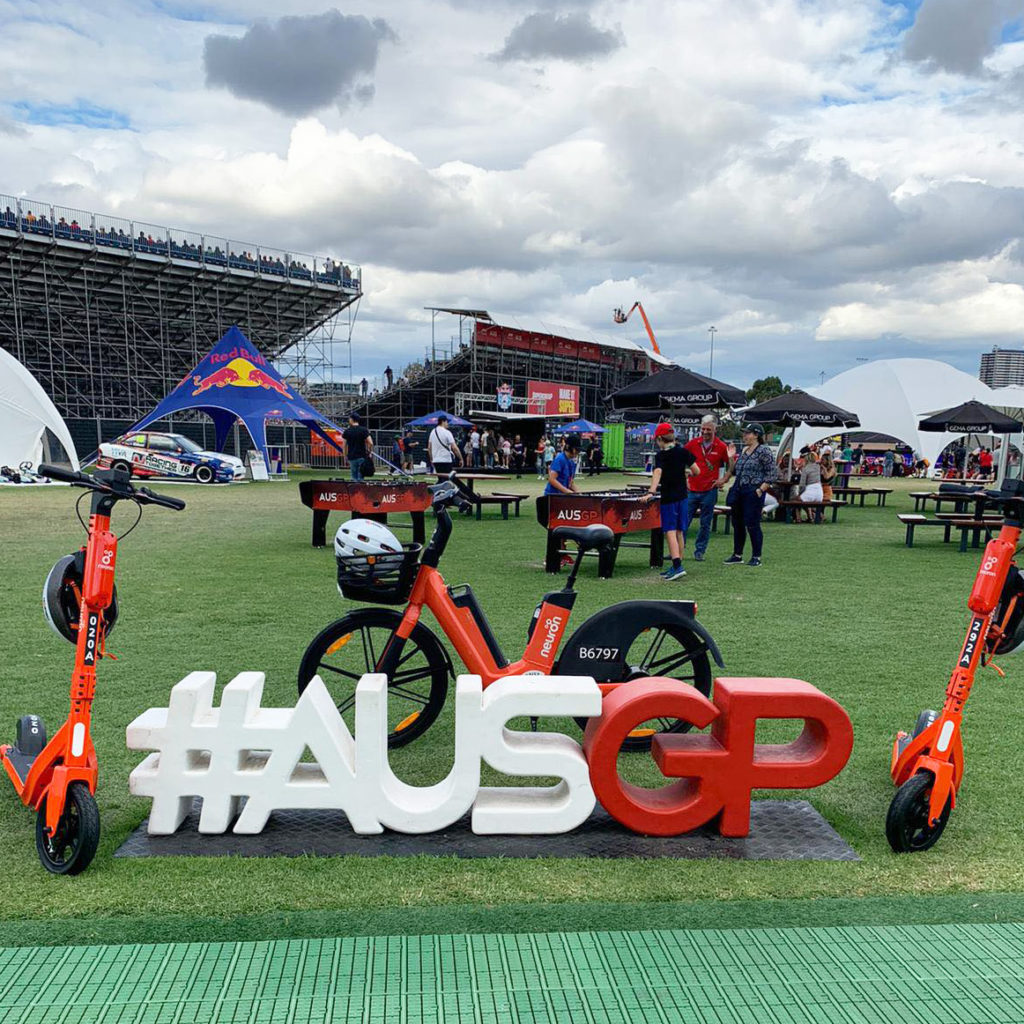
Supporting major city events
We keep the city moving during major events such as the Australian Grand Prix in Melbourne, or the annual Stampede in Calgary, Canada. Neuron vehicles offer event-goers a safe and sustainable mode of transport without contributing to traffic congestion.

Redefining ‘local’
Neuron’s e-scooters help extend what’s ‘local’, allowing riders to access neighbourhoods previously inaccessible without a car or public transport. This not only decreases car use, but also provides a larger customer base for local businesses.
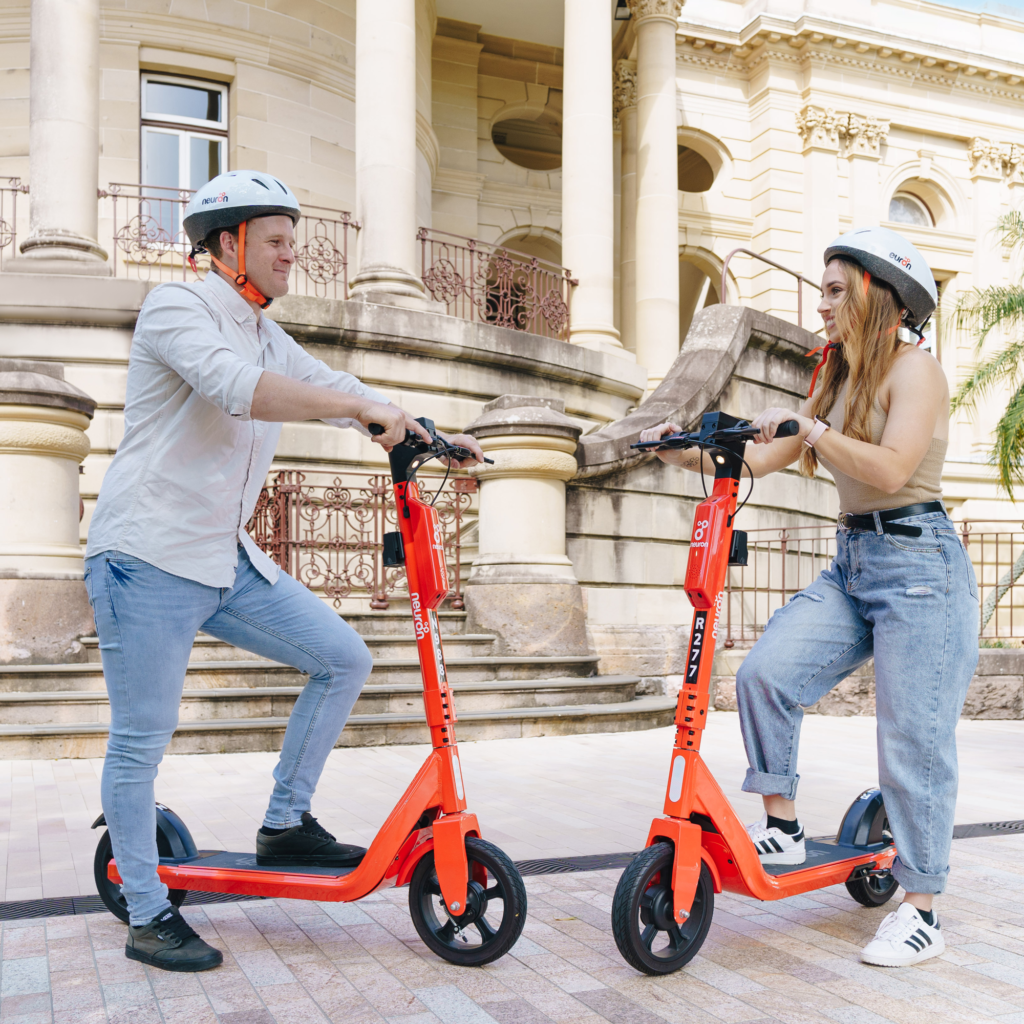
Redefining ‘local’
Neuron’s e-scooters and e-bikes help extend what’s ‘local’, allowing riders to access neighbourhoods previously inaccessible without a car or public transport. This not only decreases car use, but also provides a larger customer base for local businesses.

Supporting the night-time economy
Round-the-clock availability of Neuron e-scooters provides an important alternative to public transport for night-time economy workers, including those in the healthcare or hospitality sectors.

Supporting the night-time economy
Round-the-clock availability of Neuron vehicles provides an important alternative to public transport for night-time economy workers, including those in the healthcare or hospitality sectors.

